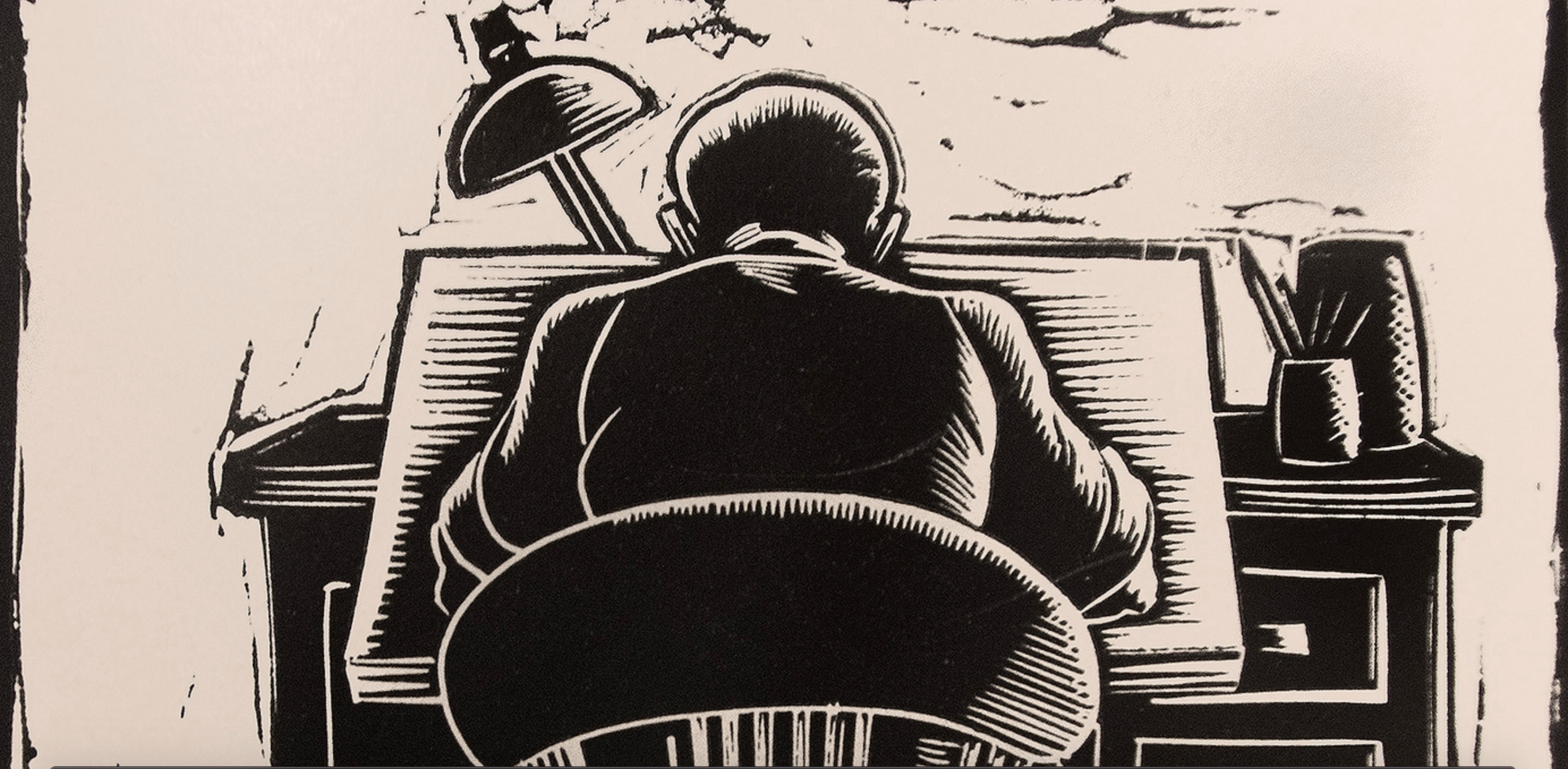
Colin Kroll, was the co-founder of Vine and HQ Trivia, both consumer sensations that brought joy to millions; Anthony Bourdain, had been a chef, journalist and philosopher, who brought understanding and connectedness to millions of lives; while Robin Williams built a career as a brilliant comedian and actor.
What these three share in common is that they were all people at the pinnacle of their industry and they all died too soon. Their premature loss is a tragedy.
The most brilliant and creative amongst us are sometimes the most troubled and nowhere is that clearer than in the entrepreneurial ecosystem. With each passing unnecessary death the importance of mental health comes briefly into focus… but that focus lasts no longer than a news cycle and nothing changes. The time for lip service came and went long ago. We must take these issues seriously and we need to act.
The mental health epidemic is real. There are 18.5% Americans that will suffer from mental illness this year, 4% of them will suffer so acutely that it will substantially limit their ability to live their lives.
That means it is extremely likely you or someone you know is suffering right now and could use support. Moreover, unlike many of the challenges we face today, the most common expressions of mental health disorder (anxiety, depression, substance abuse and imposter syndrome) are largely addressable through individual action. Not only should we all take action, we all cantake action.
While national mental health statistics are troubling, they are downright terrifying for entrepreneurs. According to a study by Michael Freeman, entrepreneurs are 50% more likely to report having a mental health condition with some specific conditions being incredibly prevalent amongst founders.
Founders are:
- 2X more likely to suffer from depression
- 6X more likely to suffer from ADHD
- 3X more likely to suffer from substance abuse
- 10X more likely to suffer from bi-polar disorder
- 2X more likely to have psychiatric hospitalization;
- and 2X more likely to have suicidal thoughts

Photo courtesy of Flickr/Thomas Shahan
Addressing the ongoing mental health catastrophe in entrepreneurship is a moral imperative, and for wise investors, it should be a function of doing business.
Venture capitalists make their living off of the blood, sweat, and tears of founders. It is through their passion and efforts that we succeed or fail. We can either choose to see founders purely as a means to an end (generating returns) or we can see them as the whole people they are.
When I make an effort to get to know our founders beyond the most superficial level then I cannot help but be moved by their personal struggles. Seeing founders in our portfolio succeed on a personal level is just as rewarding for me as sharing in their professional success. Luckily, I believe the two are intrinsically linked, which means we don’t have to choose.
As Michael Freeman writes:
“Mental health is as essential for knowledge work in the 21st century as physical health was for physical labor in the past. Creativity, ingenuity, insight, brilliance, planning, analysis, and other executive functions are often the cognitive cornerstones of breakthrough value creation by entrepreneurs.”
Depression, anxiety and mood disorders all actively work to undermine founder performance. They often contribute to burnout, co-founder conflict, toxic company culture, increased employee turnover, an inability to hire top talent, an inability to “show up” for important meetings and pitches and poor decision making in general. According to Noam Wasserman at HBS, 65% of failed startups fail for avoidable reasons like co-founder conflict. All of these experiences are exacerbated when founders are in a time of high mental and emotional strain.
Let’s assume that in a portfolio of 20 companies 15 of them fail or underperform and that Noam Wasserman’s 65% statistic holds true. That would mean that 10 of the 15 companies (65%) failed for avoidable “human centric” reasons. If a firm were able to help even half of those companies avoid failure caused by burnout and mental strain that would mean an additional five companies would be successful, doubling the number of successful outcomes in the portfolio.
Even if you’re a huge pessimist, to help change the trajectory for one out of ten companies, changes the portfolio from five winners to six. In other words, supporting founders before their “people problems” become business problems yields a 20% improvement in performance. Even if one were indifferent to the personal lives of the portfolio founders, they should care about founder health if they care about portfolio returns.
It’s great that investors profess to care about founders’ mental health, but words are not enough. We must act to reduce founders’ mental and emotional suffering. It’s the right thing to do and it’s good for business.

Photo courtesy of Flickr/Thomas Shahan
Why do entrepreneurs suffer so much more acutely?
Mental health problems permeate every industry not just the tech industry, but the statistics above would seem to indicate that we have a particular problem. What causes entrepreneurs to suffer at substantially higher than average rates? It’s a hard question to answer, and soon research from progressive labs like that of the Founder Central Initiative will help us to identify these drivers. For now, based on our own observations of founders, we believe there are several explanations which may contribute.
Self-Selection: Most founders are smart, driven and skilled people whose resume could almost certainly land them a job with a higher lifetime expected value (the median salary at Facebook is now $240,000) but they still choose the grueling, uncertain and more creative founder journey. Founders are almost certainly pre-disposed towards certain conditions (like ADHD) for example, Garret Loporto, in his book, “The Davinci Method” cites Fortune Magazine as claiming that people with ADHD are 300% more likely to start their own company than others.
Poisonous industry tropes: The narratives our industry tells are less real than pictures that grace the front of fashion magazines and are just as destructive. Photoshopped pictures of “perfect people” create an unattainable standard of beauty, the constant stream of stories about “overnight success” and “crushing it” create an unattainable standard for founders.
Startups are hard: The magic of a great team is in building a group with complementary skills. When just starting out founders don’t have a complete team and are required to do things they are not well suited to do. Working on projects that do not fit within a leader’s innate skills tends to be emotionally draining. It’s not uncommon in an early startup for introverts in the company to have to pitch and make sales calls while extroverts are forced to sit at a desk and grind away in a CRM.
Startups are alienating: The all-encompassing nature of a startup often causes founders to spend less time with family, friends and significant others and many are required to re-locate away from these support networks for funding or strategic reasons. As stress at a company builds, founders are more inclined to double down at work (a natural response to an emergency). This tendency only further burdens the founder by muting their supportive relationships and reduces their ability to cope with company pressures.
A founder must be a rock: There’s a lot of pressure put on founders to stay steady in times of company turmoil. As a result, they are often alone when they need others the most. Founders report that they feel that they cannot talk with their co-founders, especially when the problem is with the co-founder, they cannot pass the burden of their worry on to their employees, and feel that their friends and family do not understand or are tired of hearing about the company.
The “I am my company” syndrome: Founders blur the line between themselves and their companies in such a way that company failures often are felt as personal failures. Losing a customer contract or receiving a “no” from an investor can feel like a deeply personal rejection.
Founders eat last: I have yet to meet a founder who has a budgeted line item for self-care or who takes guilt free vacations. In almost every other skilled industry there is recognition that people have a right to take care of themselves and that a little bit of self-care actually leads to a more productive workforce. Investors, founders and poorly trained middle managers all perpetuate a myth in the startup ecosystem that the only way to be successful is to grind yourself inexorably to the bone.
Financial risk: In addition to opportunity cost, founders often go without a pay check and pour a significant portion of their personal capital into their businesses. This creates enormous financial stress and anxiety that sets up a scenario in which a business failure also creates personal financial ruin. A certain amount of “skin in the game” can be positive but founders are often already all-in emotionally with their businesses. A founder with too much skin in the game may live under a Sword of Damocles and be unable to focus on the key tasks, ironically bringing about their own worst fears.
Imposter Syndrome: Founders often suffer from the sense that they don’t belong where they are and that eventually they will be exposed as frauds. This leads founders to chalk success up to luck but to take all the blame for any failures. 58% of tech workers suffer from Imposter Syndromeand I suspect the number is substantially higher among founders.
Moving the goalposts: Founders find it difficult to celebrate the small wins, each victory brings on the next, greater challenge. The second most stressful time for founders is right before they are able to secure a major fundraise, the most stressful time is right afterwards.
Substance Abuse: Our industry is awash in alcohol and other substances that founders and tech workers are encouraged to consumer freely for bonding, as a social crutch, and for performance optimization. These substances are both a cause and a symptom of broader problems in the ecosystem.
I wager that simply reading the above list left you stressed out and self-identifying with a number of the factors that cause founders stress. Luckily there are some things we can all do to combat mental health strain.

Photo courtesy of Flickr/Thomas Shahan
What can investors and founders do about founder mental health?
Each of us who participates in the startup ecosystem contributes to the problem of poor founder health. This puts each of us in a position to positively impact this experience by acting. Here are a few things we can do:
Destigmatize
o Investors should make sure that the founders they work with know that they take mental health issues seriously. One way to do this is to take the Investors Pledge developed by Erin Frey and Ti Zhao at Kip. Just taking the pledge sends a powerful signal to founders that it’s OK for them to seek help. Better yet, investors, in their onboarding process with founders should explicitly touch on their support for the founders’ seeking mental health services when they feel compelled to do so.
o Drop the act. Being an investor is different from being a founder but it isn’t easy and investors suffer in many of the same ways. If investors want to support their founders, they need to be authentic and vulnerable in front of them. Investors need to show founders its ok to open up and that it’s ok to have doubts or to struggle with mental health.
o For founders, don’t spread or buy into the myths. When you’ve been grinding away on your business for years in anonymity and then have a major breakthrough, make sure your PR campaign accurately reflects the journey. You suffered to bring your company to the pinnacle of success and you had to invest heavily in yourself to survive the trip. Make sure when other founders read about your success they understand how you really got there.
Provide Resources
o It’s easy for people to forget how financially constrained most founders are. Just because they’ve raised $5 million in a recent financing doesn’t mean they necessarily have the personal capital to seek help and support. A portion of financing rounds should be earmarked for the founders themselves and investors should hold founders accountable for investing in their wellbeing and development.
o Founders need to include a line item in their P&L for wellness or self-care. Budgets are moral documents and they set the priorities of a company. If there is no line item for supporting the mental/physical/emotional well-being of the founders and employees, then the company will be devoid of the resources to offer this type of support. We, the participants in this ecosystem, need to put our money where our mouths are when we say that we are “founder friendly” and “invest in founders first”.
Don’t forget the mind body connection
o Mental, emotional and physical wellbeing are all deeply linked to one another. Just as mental health issues often lead to substance abuse, a lack of physical exercise or nutrition can also lead to depressive mood states and a lack of focus. The founder fifteen is as real as the freshman fifteen but it’s much more destructive.
Founders need to make sure to incorporate their physical activity of choice into their life, need to watch their nutritional intake and should consider activities such as yoga, meditation and intentional breathing that research shows help boost mood, sharpen focus and enhance emotional resilience. (Short plug, at Atlaswe work on addressing the whole person because we believe effective leaders are those who are both physically and emotionally fit.)
Connect, connect, connect
o Founders need to remain anchored in a support network. They should join a peer group, engage with old friends, go out on date nights with their significant other and make new friends. Not only is it a fun way to unload some of the pressure they’re under, but it’s a great reminder to founders that they have a separate existence from their company.
o Founders should take an intentional vacation away from work, tech, and business. If, like me, a founder can’t voluntarily disconnect even while on vacation, they should consider joining a community like Soulscapeor traveling off the grid so that they are forced to disconnect and recharge. Burnout rarely appears as the primary track in startup postmortems, but a trained ear can usually find its influence.
o Set a culture that is supportive of self-care. If everyone from the receptionist to the CEO is willing to seek help and take care of themselves, it creates a company-wide habit that enables everyone to thrive. A healthy culture will pay for itself a thousand times over in recruitment, lower turnover and happier, more productive people who are willing to sacrifice for the company when sacrifice is called for.
Set priorities not tasks
o Founders and A-type personalities tend to live and die by their calendar and their task lists. Unfortunately, task lists are just reminders that there are countless things to be done. For most of us our task lists are quite literally infinite. This is a recipe for unbearable mental strain and unmanageable cognitive load. The definition of anxiety is when we perceive that our ability to achieve is overwhelmed by the tasks at hand, which is inevitable when our tasks are ill defined, too large or seemingly unending. Instead of a task list, switch to a daily priorities list where only the urgent AND important items are listed. Completing these items may be more difficult but getting them off your plate is infinitely more satisfying.
Be vigilant
o Learn the warning signs of depression and burnout. People who are drowning don’t wave their hands in the air and shout for help, they slip silently beneath the waves and only trained life guards tend to spot people in trouble. It’s the same way with depression. Depressed people don’t mope around and they aren’t necessarily sad so much as numb. Here are things to look out for:
- Persistent feelings of pessimism
- Sad, anxious or empty mood
- Change in behavior and loss of interest in previously enjoyed activities
- Change in diet or eating schedule
- Change in sleep schedule
- Irritability
- Inability to make decisions or concentrate
- You can also use this validated self-assessment for depression
Building companies is inherently hard mentally, physically and emotionally but our ecosystem is a toxic one with dozens of factors all contributing to make it even more so. We are quite literally killing ourselves and thereby sabotaging our long-term competitiveness. There are tangible actions each one of us can take to start fixing this toxicity but at the end of the day but I believe most of those actions boil down to treating each other and ourselves as human beings. If we recognize and embrace our weaknesses and support one another in our imperfections, we will start seeing a healthier more sustainable entrepreneurial ecosystem.
Resources:
National Suicide Prevention Hotline: 1-800-273-8255
Depression resources: https://www.everydayhealth.com/depression/guide/resources/
Free/Cheap Peer Groups: https://www.evryman.co; https://www.chairmanmom.com; Atlas Events and Peer Groups
(if anyone knows of similar free resources, please share them in the comments)

